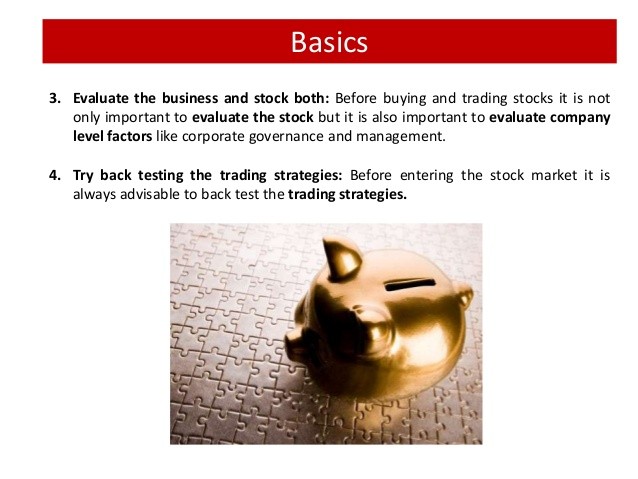The Basics of Stock Trading_1
Post on: 5 Сентябрь, 2015 No Comment

Stock trading is actually a misnomer as stocks are not actually traded during the buying and selling process. This phrase is simply jargon used by those in the industry to indicate the buying or selling of various stocks. Stocks are typically a subject that creates much confusion for inexperienced investors and sometimes even for those that are more seasoned.
It is always advisable that individuals interested in buying or selling stocks obtain professional assistance, from reputable companies in the industry such as Firstrade. Having professional guidance and advice from someone adept in stock market processes will help ensure the buying and selling of stocks goes smoothly without unnecessary complications.
The following information will provide some basic insight into stocks and how they are traded.
The Various Types of Stock
When individuals enter into the foray of stock trading, they will be met with terms with which they may be unfamiliar. Learning these terms will help investors to better understand the process and be better equipped to make profitable decisions regarding their stocks.
Common vs. Preferred Stock
Common stock is the form in which the majority of stocks are issued. Through capital growth, common stocks typically yield greater returns than almost any other type of investment. However, these types of stock also present a higher risk to investors.
With common stock, investors have one vote per share in regard to the election of board members.
While preferred stock may not offer the same type of voting privileges, this type of stock does represent a degree of ownership in the company. Preferred stock presents less risk to investors as it usually guarantees a fixed dividend for an unspecified amount of time. However, preferred stock can be callable, which means the company has the right to purchase the stock from the stockholders at any time and for any reason they choose.
Listed and OTC Stock
Companies whose stocks are traded on the New York Stock Exchange (NYSE) are considered listed securities or stocks. NYSE listing requirements ensure that these stocks conform to certain criteria such as market capitalization, revenue, and number of shareholders. These listing requirements are in place in order to ensure and enforce stability. Anytime a stock fails to meet the listing requirements, it can be delisted. It will be important for investors to ascertain whether their stock is considered listed with member firms. Member firms are those companies that regularly conduct stock trades on the NYSE.
Over-the-counter (OTC) stocks are also referred to as off-exchange trading. Unlike listed stocks, OTC stocks are traded directly between two parties. Even though OTC stocks are not listed or traded on the stock exchange like other stocks, they must still meet regulations and requirements established by the U.S. Securities and Exchange Commission (SEC). However, some OTC stocks do not have reporting requirements. Examples of OTC stocks with no reporting requirements are those stocks that are considered Pink Sheets securities.

Penny Stocks and Large Cap Stocks
Penny stocks are another type of security. They are sometimes referred to as a micro cap equity. When the shares of a company trade for $ 5.00 or less, these are known as penny stocks. While penny stocks are more volatile and present more risk to investors, they require less initial investment which makes their acquisition easier. The companies from which penny stocks may be purchased are often less secure and may not pay dividends. However, penny stocks may potentially have a higher payoff in a shorter period of time.
Large cap stocks are on the other end of the spectrum from penny stocks. Large cap stock is a term used to refer to those companies that have a market capitalization value of more than $ 10 billion. Stocks may also be referred to as medium, small, or micro, as discussed previously. The market capitalization value of a company will be determined by multiplying the companys number of outstanding shares by the price per share of its stock.
Professional Assistance with Stock Trading
When individuals desire to trade stock, it will typically be in their best interests to seek advice from a professional. Being well-versed in stock and other market terms will help potential investors ensure they have a comprehensive understanding of the investment they are making. As with anything with which individuals are unfamiliar, expert counsel from investment firms, such as Firstrade, is highly recommended. Before making any decisions regarding the buying or selling of stocks, professional assistance should be sought.
www.firstrade.com more often than not.














